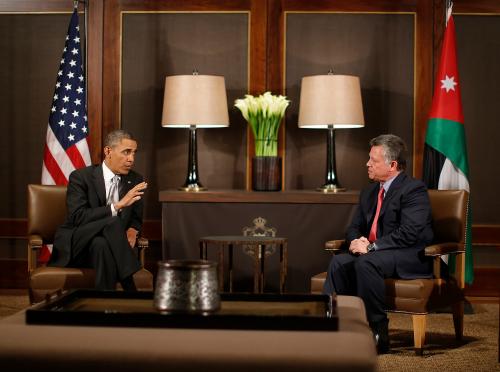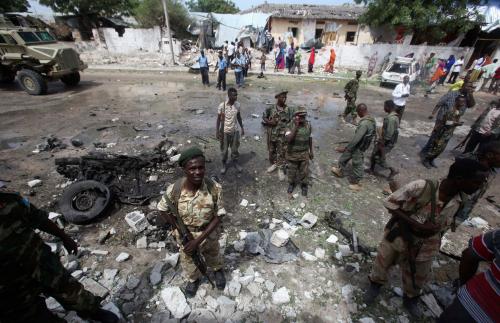Nigeria Looks for Lost Oil Money While President Goodluck Jonathan Prepares for Re-election
As noted by the Financial Times, Nigerian Central Bank Governor Lamido Sanusi provided pages of data, expert opinions and evidence in the form of contracts in a memo outlining the theft of government oil revenues. Sanusi’s memo to the Nigerian Senate Committee on Finance has prompted an audit of fuel subsidy payments. The minister of finance, minister of oil and the Nigerian National Petroleum Corporation have already been queried by the Senate Committee. Political analysts wonder how these allegations will impact current President Goodluck Jonathan’s 2015 election campaign. The president is still working on stabilizing the north and preventing attacks by terrorist groups Boko Haram and Ansaru. Meanwhile, he has also gone into full election preparation mode, with the sacking of four more ministers deemed unsupportive of his re-election goals. Jonathan also announced stronger attention to energy sector reforms this week, which are estimated to require $900 billion over 30 years.
Somalia Loses Donor Support from Turkey
Turkey removed direct budgetary support to the Somali government this week. Turkey was formerly Somalia’s largest donor and reportedly provided Somalia’s central bank with $4.5 million per month in cash payments. The assistance was halted after a graft scandal was revealed when the current central bank governor resigned to avoid being pressured into corruption after only seven weeks on the job. Western donors are now in a quandary on whether or not to support the Somali government in order to keep al-Shabab at bay. Attacks from the organization continued this week: A car bomb outside the Mogadishu airport killed five people.
South Sudan Government and Rebels Warned About Violating the Cessation Agreement
The U.S. State Department made a statement over the weekend expressing concern about reports of violence on both sides of the current civil conflict in South Sudan. The U.S. statement provides a strong suggestion that anti-government and government forces comply with withdrawals of troops, and with U.N. Mission in South Sudan (UNMISS). U.N. Secretary-General Ban Ki-moon also issued statements of concern and warning to the newly independent nation. These statements came ahead of the International Governmental Authority on Development’s talks that resumed in Addis Ababa on Tuesday.
Oil Governance and the State of the Kenyan Economy are Highlighted by the Africa Growth Initiative
Next week, AGI partners with Oxfam America to host a panel discussion about managing resources in economies with new oil and gas discoveries, e.g., Tanzania, Kenya, Uganda and Mozambique. The event is private, but a webcast is available and Twitter discussion highly encouraged using #AfricaOilGas.
In addition to covering East Africa’s oil and gas boom, AGI and its partner think tank the Kenya Institute for Public Policy Research and Analysis will host a discussion on the state of the Kenyan economy. The conversation will center on KIPPRA’s fifth annual report on the topic. The event will also be webcast and the twitter hashtag is #KenyaEconomy.


Commentary
Africa in the News: Nigeria Tracks Down Lost Oil Money, Somalia Loses Support from Turkey, and South Sudan Parties Warned on Cease-Fire Violations
February 14, 2014